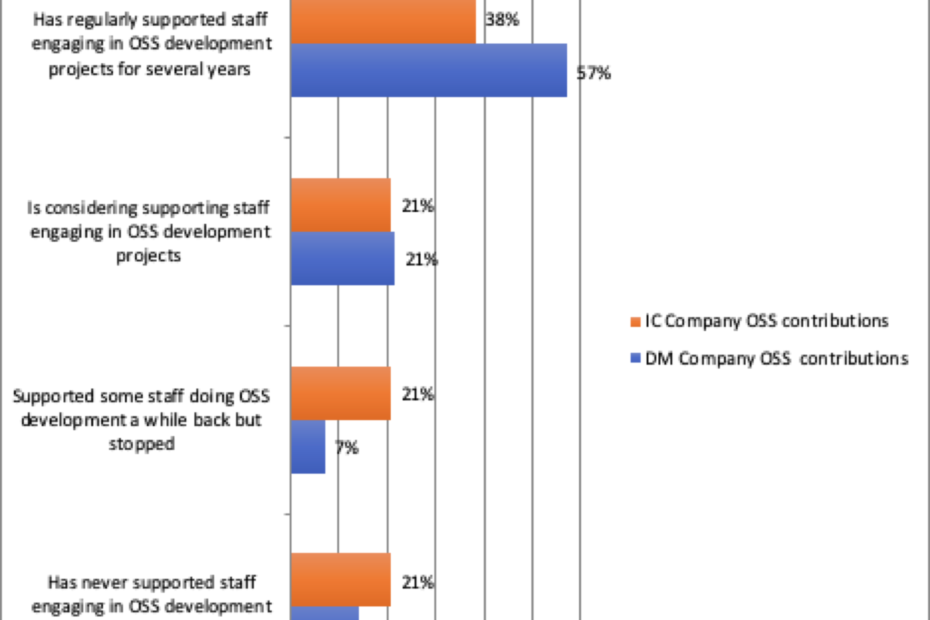Why don’t operators engage in OSS development? Clearly, some do engage! Of the Individual Contributor respondents, 20 (of 34) said they contributed to OSS projects, and 9 said they had never contributed (5 respondents provided no information).
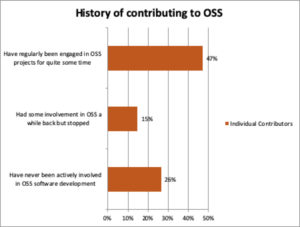
Responding Decision Makers were clearly generally supportive of staff time being contributed to OSS projects.
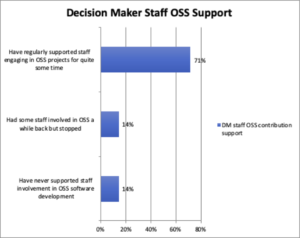
From both the Decision Maker and Individual Contributor perspectives, the bulk of the respondents’ companies regularly support staff time contributions to OSS projects, and a significant portion are at least considering it for the future.
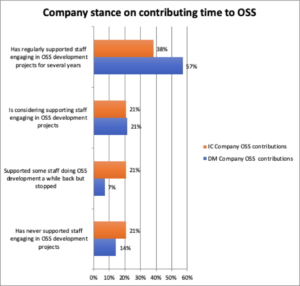
Interestingly, Individual Contributors and Decision Makers had different perspectives on whether or not their companies provided financial support to OSS projects. This may be a function of the questionnaire not having enough coverage to be statistically meaningful, or it could be because the Decision Makers were more likely to be in charge of making those financial contributions, or something else entirely. Nonetheless, it is a curiosity worth noting.
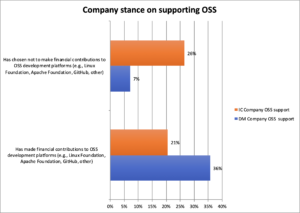
Major attractors and impediments to contributing time to OSS
The key reason for contributing to particular OSS projects is to tailor the code to meet the organization’s own needs. Additionally, a significant proportion of Individual Contributors identified that they had found bugs in OSS and took the opportunity to contribute the fix back to the OSS project. Particularly for Individual Contributors, aspects of a given project’s culture clearly come into play — whether the project has an open and transparent governance structure, a lively development community, and whether or not they know and respect other developers on the project.

On the flipside, not being happy with a project’s governance structure was second only to a lack of properly-skilled in-house resources in the identification of impediments to contributing to a specific OSS project (“lack of skills” was asked on the Individual Contributor question about specific projects, and the Decision Maker question about OSS contributions in general).
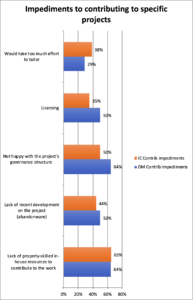
Looking at the general question of contributing to OSS projects, the top impediment was identified as “lack of cycles”.
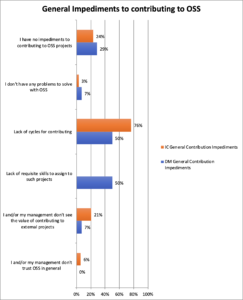
Major attractors and impediments to financially supporting OSS
As noted above, the respondents’ companies do provide financial support for OSS, at least sometimes. The standout reason for providing financial support for a project was identified as: the organization believes in the OSS project and wants to support it. In the remarks for “Other”, respondents indicated they provided support in order to gain access to feature prioritization, or to get technical support, among other reasons.
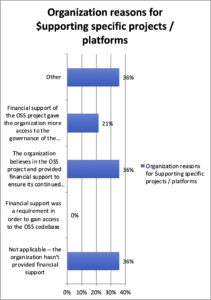
There are clearly things that can improve or inhibit financial support for particular OSS projects. Although “lack of funding” is identified as the major impediment to supporting a particular OSS project, it is clear that Decision Makers want to see how the project money is being spent (transparency), and that it is being spent on things that advance the project, specifically.
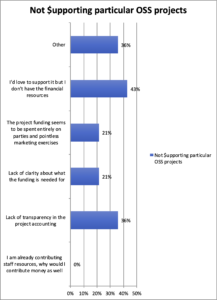
Interestingly, when it came to the question of more generally supporting OSS projects and platforms, no one said they supported a project because their competitors (visibly) did. From the comments provided in “Other”, one interpretation of this chart is that responding network operators pick and choose OSS projects to support based on their specific software needs.
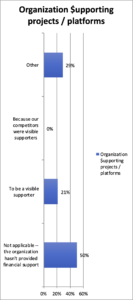
Looking for feedback!
What can we make clearer in this part of the report? What other questions does this bring to mind that we should answer?
Send comments in mail to: ldaigle@thinkingcat.com
